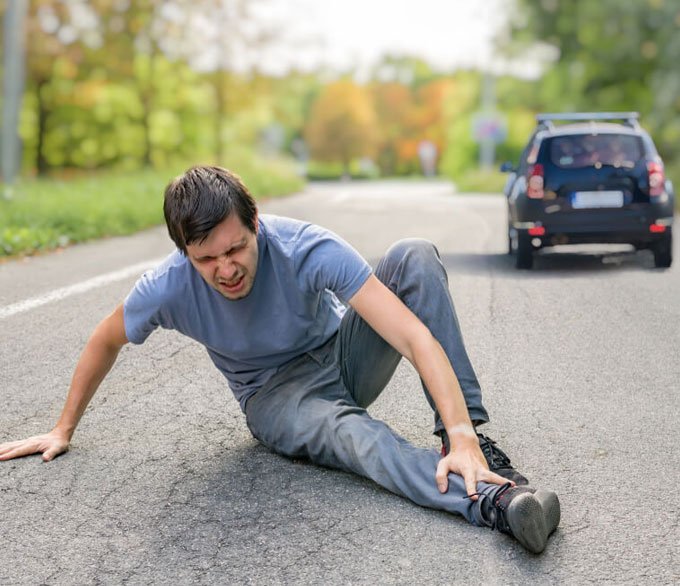Social Media and Personal Injury Claims: What You Post Can Hurt Your Case
In today’s digital age, social media is an integral part of everyday life.

In today’s digital age, social media is an integral part of everyday life. People share personal moments, updates, and opinions with friends and followers. However, if you are pursuing a personal injury claim, your social media activity can significantly impact the outcome of your case. A single post or comment could be used against you by insurance companies or defense attorneys to minimize or deny your compensation. Consulting a personal injury lawyer can help you navigate these potential pitfalls and protect your claim.
How Your Personal Injury Claim May Be Affected by Social Media
1. Contradicting Your Injury Claims
Insurance companies and opposing legal teams often monitor claimants’ social media accounts for any evidence that contradicts their injury claims. For instance, if you claim to have a severe back injury but post photos of yourself hiking or attending a dance party, the defense may argue that your injuries are not as severe as stated. Even if you were simply trying to put on a brave face for social media, such posts can be taken out of context and used against you.
2. Providing Evidence for the Defense
Your posts, comments, and even location check-ins can be used by the opposing party to dispute your case. For example, a simple status update stating, “Feeling great today!” might be presented in court as evidence that you are not experiencing pain or suffering from your injuries. A personal injury lawyer can advise you on how to avoid such missteps and maintain the integrity of your claim.
3. Friends and Family’s Posts Matter Too
Even if you are cautious about what you share online, posts by friends and family can still impact your case. If a friend tags you in a photo or video showing you engaging in activities that seem inconsistent with your injury claims, the opposing legal team can use this against you. Informing your close contacts about your case and requesting them to be mindful of what they share is crucial.
4. Comments and Messages Can Be Used as Evidence
It’s not just posts and pictures that can affect your case—private messages and comments can also be used in court. If you mention feeling better or recovering faster than expected in a message, the defense may argue that your injuries are not as severe as stated. A personal injury lawyer can guide you on how to communicate carefully during your case.
Advice for Safeguarding Your Social Media Personal Injury Claim
1. Set Your Accounts to Private
While making your accounts private doesn’t guarantee full protection, it can limit who can see your posts. Adjust your privacy settings so that only trusted friends and family can access your content. However, keep in mind that insurance companies and defense attorneys may still find ways to access your posts.
2. Avoid Posting About Your Case
Refrain from discussing your personal injury claim, legal strategy, or settlement discussions on social media. Even a seemingly harmless post about your frustration with the process can be used against you. It’s best to keep all case-related matters between you and your personal injury lawyer.
3. Avoid Posting Pictures and Location Check-ins
Photos and location check-ins can be misinterpreted and used against you in court. For example, if you check in at a gym or post a picture at a social event, the opposing party may argue that you are not truly suffering from your alleged injuries.
4. Ask Friends and Family to Avoid Tagging You
Politely request that friends and family refrain from tagging you in posts or photos until your case is resolved. Even if you are not posting personally, being tagged in an activity that contradicts your injury claims can be damaging.
5. Do Not Delete Posts
While it may seem logical to delete past posts that could be harmful, doing so can be considered destruction of evidence, which may negatively impact your case. Instead, consult a personal injury lawyer for guidance on handling past social media activity.
6. Limit New Posts Until Your Case Is Settled
The best approach is to stay off social media as much as possible while your claim is ongoing. If you must post, ensure it does not relate to your injury, activities, or case in any way.
How a Personal Injury Lawyer Can Help
A Personal Injury Lawyer Florida understands the tactics insurance companies use to undermine claims and can help protect your case from being sabotaged by social media activity. They will advise you on best practices, guide you on what to avoid posting, and work to ensure that any misleading evidence used against you is properly challenged in court.
By being cautious and working closely with a personal injury lawyer, you can avoid common pitfalls and focus on recovering from your injuries. If you have questions about how social media might affect your case, consult a legal expert for tailored guidance.
What's Your Reaction?















